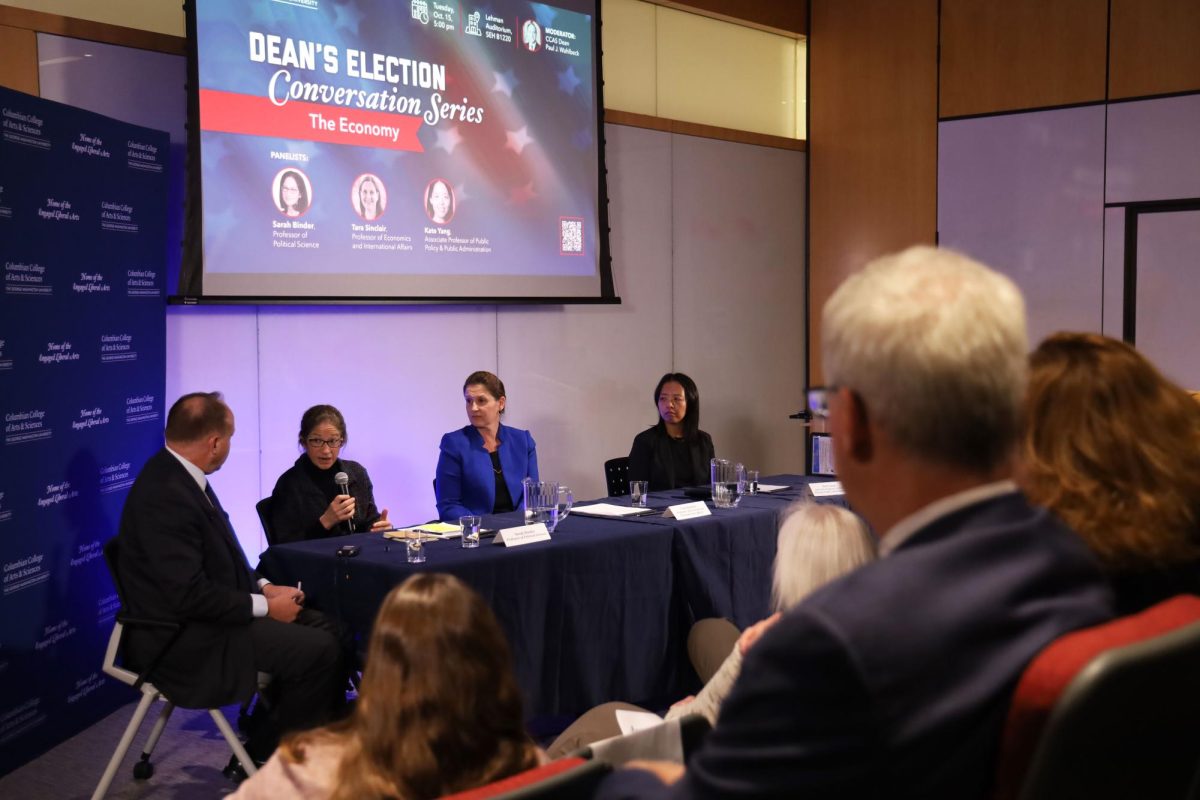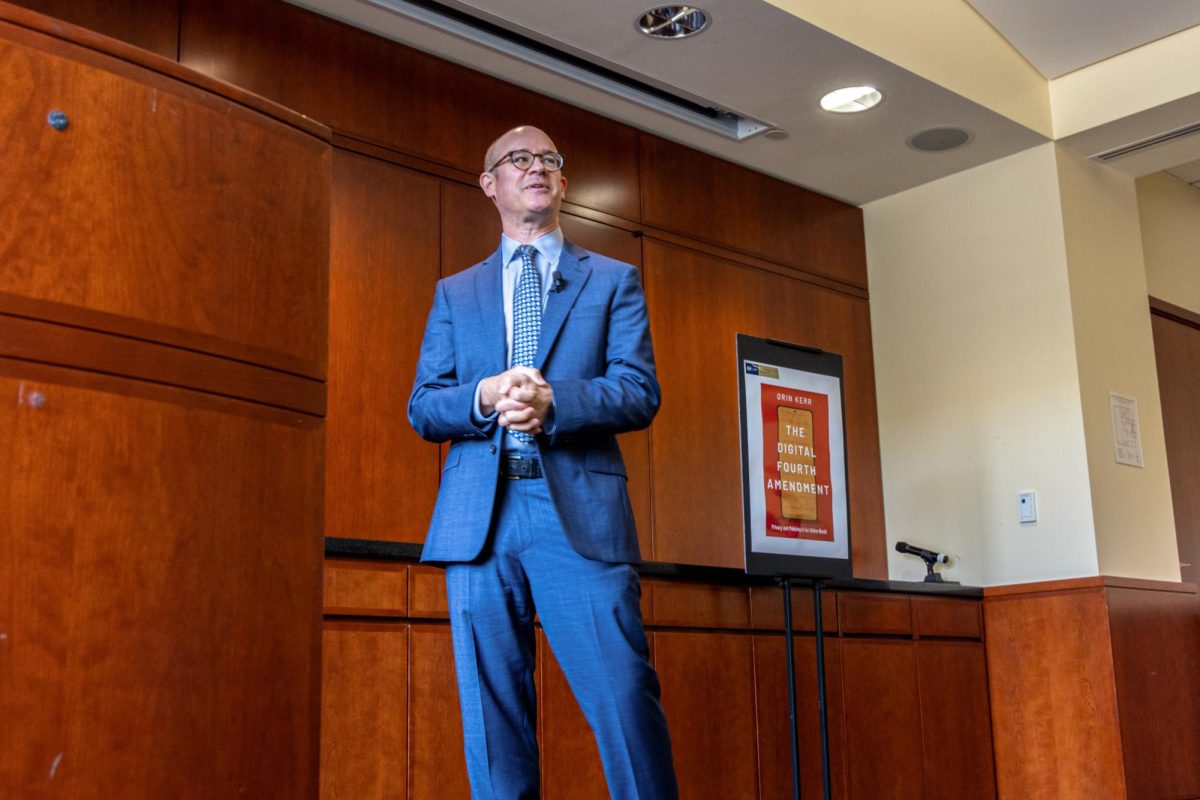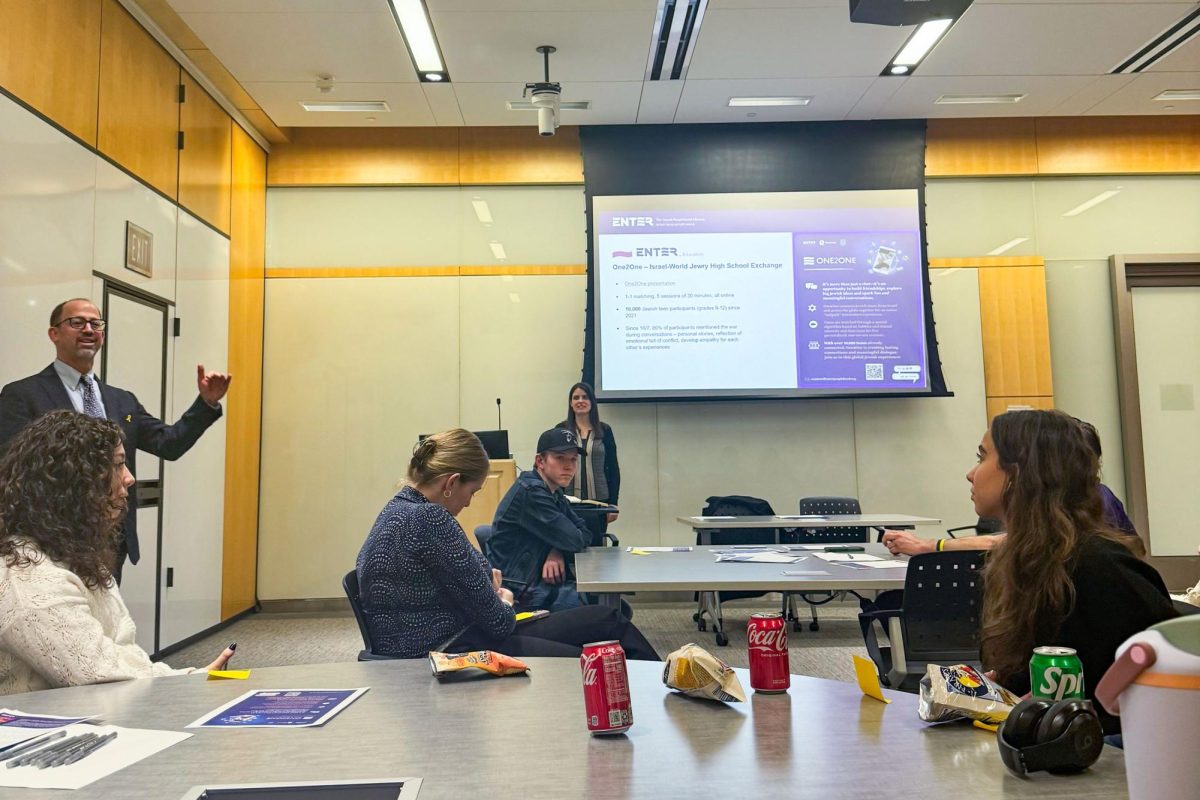A panel of economists and experts in political science and public policy spoke about the state of the U.S. economy and the 2024 election at the School of Engineering & Applied Sciences on Tuesday.
Sarah Binder, a professor of political science, Tara Sinclair, a professor of economics, and Kate Yang, an associate professor of public policy and public administration, sat down for a conversation with Columbian College of Arts & Sciences Dean Paul Wahlbeck to discuss the 2024 election and how each candidate has the potential to affect the U.S. economy. The event was hosted by CCAS as part of the Dean’s Election Conversation Series, a series of three conversations with political experts leading into the 2024 election in November.
After a brief introduction from Sinclair introduced the conversation by explaining the U.S.’ “remarkable” economic recovery from the COVID-19 pandemic in comparison to other countries. Wahlbeck then asked Binder where the presidential candidates stand in regards to the Federal Reserve — the U.S.’s central bank — and its independence from the executive branch. The Fed has long been an independent agency within the executive branch, but former President Donald Trump has called its independence into question by saying the president has the right to discuss issues, like interest rates, with the agency’s chair.
“There is a notion, at least among economists, who will say the more independent the Fed, the lower is inflation,” Binder said.
Binder said Vice President Kamala Harris has a very “hands off” approach to the Fed, while Trump may have a “greater role,” which is usual for him as he is known as a “norm-breaker” across a variety of governmental traditions, including his handling of the Fed. She said if Trump were elected again there is “no reason” to think the economy would be different from his first term.
In Trump’s first term, inflation was measured at relatively low levels at an average 1.9 percent, while Biden’s administration saw much higher inflation levels at 5.2 percent as it dealt with the economic recovery from the COVID-19 pandemic.
“Harris seems to abide by this notion that the presidents are going to keep their hands off the Fed,” Binder said.
Wahlbeck then asked the panel how candidates are addressing the issue of young people’s inability to find affordable housing. Housing prices have risen 47 percent since the start of 2020.
Yang said inflation and affordability are two issues that make housing difficult some young people.
“I think there are affordability issues or crises that have been really brewing before even inflation has become an issue,” said Yang.
Yang said she believes the affordability issue predates all inflation discussions as even before the pandemic, the price for housing, childcare and higher education had gone up. She said it made sense that young people couldn’t afford housing
Harris has proposed a first-time homebuyers and developers tax credit, as well as set a target of 3 million new housing units within the next four years, Yang said.
While Trump has proposed lowering the corporate tax rate from 21 percent to 15 percent for companies producing in the United States, Yang said Trump’s proposals are not very specific when compared to Harris,’ who has proposed expanding the child tax credit and providing a $25,000 tax credit to first-time home buyers. She said she is “skeptical” about Harris’ and Trump’s policy proposals having much effect on the housing affordability issue, and state and local governments need to act to lower housing costs.
The panel then turned to the issue of student loan forgiveness, in which Sinclair said student loan forgiveness will likely not be much help to students and will not strengthen the economy.
The student loan forgiveness would have the government forgive a portion or all of a person’s student loan debt. Although the Biden administration’s original plan proposed in 2022 was struck down in 2023 by the Supreme Court, the White House has forgiven loans for smaller sectors of the population, including the recent forgiveness of student loans for public workers.
“We really have to think carefully about how it’s implemented,” Sinclair said. “Both to see if even students today would benefit from it or if it would only be the people who took out loans before the loan forgiveness policies came into being or is it the sort of policy that is going to stimulate further educational demand.”
When looking at the aggregate economic impact, Sinclair said the effect of loan forgiveness would be small and negatively impact the government’s budget, as the student loan forgiveness plan will transfer the loan money to spenders stimulating the economy.
“It might not be the best policy or well targeted and may not serve the people who are lobbying for it,” Sinclair said. “Particularly, it might be better to have more grants rather than loan forgiveness.”











